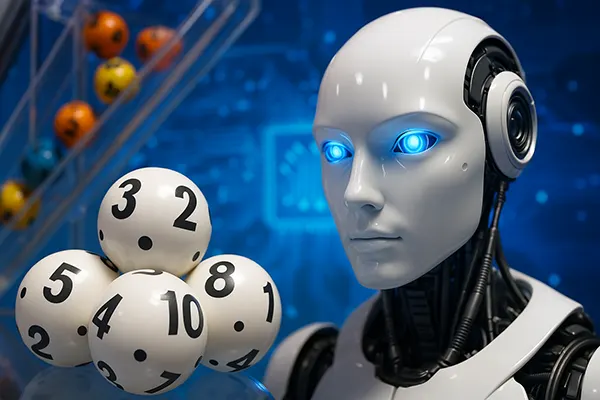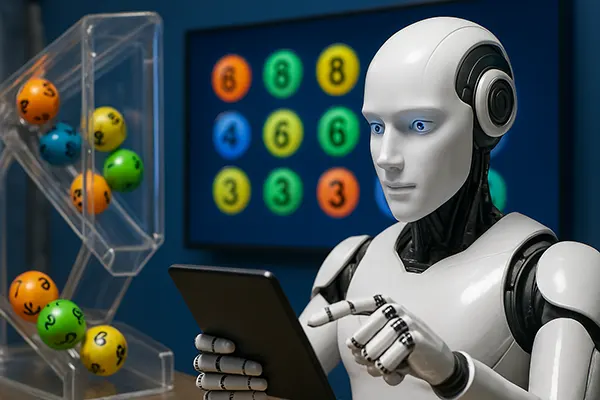
How Artificial Intelligence Predicts Lottery Numbers: Reality or Myth?
Every lottery player has at least once wondered whether there is a secret formula for choosing winning numbers. With the rise of artificial intelligence (AI), some enthusiasts have turned to machine learning and predictive algorithms to crack the code. But can AI really predict lottery numbers, or is this just another modern myth? Let’s explore the facts, data, and technological developments surrounding this captivating topic.
Understanding How AI Analyses Lottery Patterns
Artificial intelligence is adept at finding patterns in massive datasets, which is one reason it’s been applied in finance, healthcare, and other prediction-heavy fields. When applied to lottery draws, AI systems typically analyse thousands of past draws, identifying number frequencies, common sequences, and timing patterns. Algorithms such as neural networks and decision trees are often trained on these datasets to make future predictions.
However, lotteries are designed to be random. Most official lotteries use either mechanical machines or cryptographically secure random number generators (RNGs), ensuring that outcomes are not influenced by previous draws. This design limits the usefulness of historical data for future predictions, regardless of how advanced the analytical method might be.
Despite these limitations, some hobbyists and AI developers have built models that show patterns such as ‘hot’ or ‘cold’ numbers – those that appear more or less frequently than expected. While these models offer fascinating insights, they do not provide guarantees and often fall short under statistical scrutiny.
What Types of AI Are Used in Lottery Prediction?
The most common type of AI applied in this field is machine learning, especially supervised learning techniques. These include linear regression models, support vector machines, and more advanced neural networks. In theory, these models can learn from historical data and output possible ‘likely’ numbers for future draws.
Another area of experimentation involves reinforcement learning, where algorithms try to improve their predictions over time based on a reward system. However, in lotteries, there is no consistent pattern or feedback loop that the algorithm can rely on to improve, making reinforcement learning largely ineffective in this context.
Generative AI, such as GPT-based models, has also been explored for number generation, but this use remains experimental and not grounded in statistical significance. These models are better at generating plausible-sounding outputs than making truly predictive insights in the context of randomness.
The Scientific Consensus: AI vs Randomness
As of February 2025, the overwhelming consensus among statisticians and data scientists remains unchanged: true lottery predictions are statistically improbable. The key issue is randomness. Since most national lotteries operate under strict legal and technical standards to ensure randomness, any model attempting to forecast outcomes is essentially attempting to break the law of probability itself.
Experts from MIT, Stanford, and the European Statistical Society confirm that there is no mathematical evidence supporting the idea that AI can outperform random guessing when it comes to fair lotteries. Even the most sophisticated models, when tested under controlled experiments, failed to produce better-than-chance results.
It’s important to distinguish between detecting patterns (which AI can do well) and making accurate predictions (which, in the case of lotteries, AI cannot do reliably). This is not due to a flaw in AI, but rather the nature of the system being modelled.
Why Do People Still Trust AI with Lottery Numbers?
Despite the evidence, many continue to use AI-based tools to choose their lottery numbers. The psychological appeal is strong – people enjoy the feeling of using a “smart” tool, even if it doesn’t truly increase their chances. This behaviour is rooted in cognitive biases and the human tendency to seek order in randomness.
There is also a market for lottery prediction apps and services that claim to use AI. Some of these tools present convincing visuals, charts, and predictive models. However, users should be cautious, as many of these services offer little more than basic statistical analyses dressed up with tech buzzwords.
Ultimately, belief in AI prediction often stems from anecdotal wins, even if these are purely coincidental. It’s easy to remember when an algorithm ‘worked’ and forget the hundreds of times it didn’t. This survivorship bias fuels the myth of AI-powered lottery wins.

Where AI Might Still Have Value in Lottery Contexts
While AI cannot predict lottery numbers in a truly random system, it still holds potential for contributing value in the broader lottery environment. For instance, AI can be instrumental in fraud detection, helping lottery operators monitor irregular betting patterns or detect compromised systems.
In some cases, where lotteries are not truly random – such as poorly implemented digital draws – AI can identify weaknesses or flaws in the RNG systems. There have been historical cases where mathematical analysis helped identify and exploit such flaws, although these are rare and often criminal in nature.
Moreover, AI can be used to enhance user experience in lottery platforms, such as offering personalised number picks based on behavioural data or improving marketing and game design based on player feedback.
Is There a Legal or Ethical Issue with Using AI?
Yes, especially if AI tools are used in ways that attempt to exploit system vulnerabilities. In regulated jurisdictions, such activities may be considered illegal. Even if no laws are broken, promoting AI as a “winning” solution may breach advertising and gambling fairness codes.
Operators and players must adhere to ethical standards. While using AI for fun or personal interest is generally acceptable, selling AI-based lottery prediction tools with unrealistic claims may mislead vulnerable consumers and contribute to gambling-related harm.
It’s crucial for developers and marketers to distinguish between entertainment and false hope. Transparency about the limits of AI in gambling contexts is not just best practice – it’s a legal necessity in many countries.
